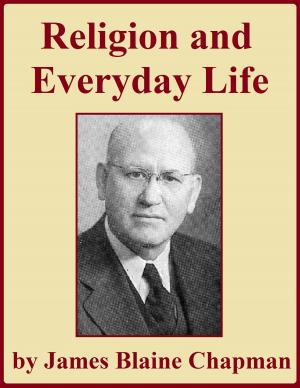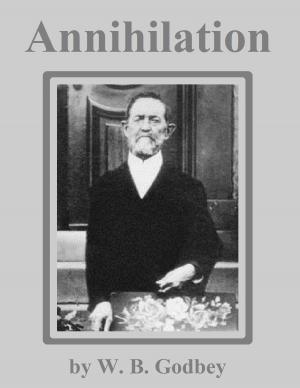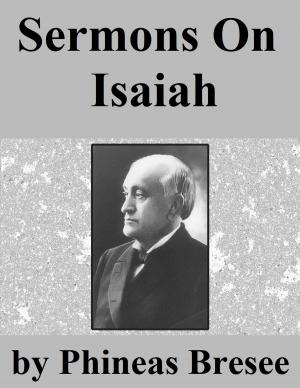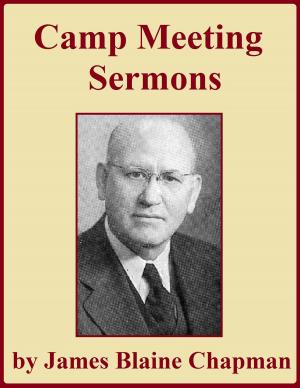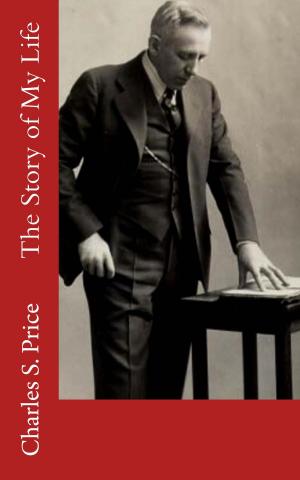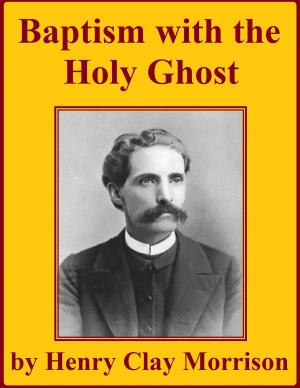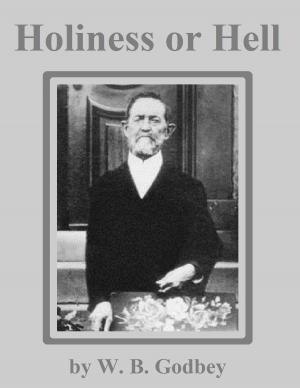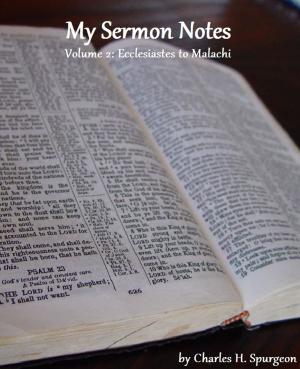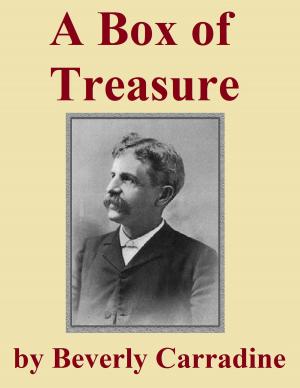Paul the Mystic
A Study in Apostolic Experience
Nonfiction, Religion & Spirituality, Bible & Bible Studies, Biographies, New Testament, Christianity, Christian Life| Author: | James Mann Campbell | ISBN: | 1230000517270 |
| Publisher: | Jawbone Digital | Publication: | June 27, 2015 |
| Imprint: | Language: | English |
| Author: | James Mann Campbell |
| ISBN: | 1230000517270 |
| Publisher: | Jawbone Digital |
| Publication: | June 27, 2015 |
| Imprint: | |
| Language: | English |
From the preface:
In the Lives Of Paul which have appeared, --and their name is legion,--scant justice has been done to the mystical element in his religious experience and in his teaching. And yet nothing is more characteristic of Paul than his mysticism. Although not liking him any the better for it, Professor A. B. Bruce frankly admits that "he was a man of profoundly mystical religious temperament." He was the kind of man who could not be content to dwell on the outside of religion, but sought to reach that which was furthest within. He is generally thought of merely as a consummate logician--a skilful system-builder. He was much more than that. He was first of all a poet, and afterwards a logician. He writes with the exuberant imagination of a true Oriental, often sublimely indifferent to logical sequence, and displaying a subtilty of thought incomprehensible to the mere grammarian or textual critic. Moreover, his dialectical temper was held in captivity to a spiritual aim which led him frequently to stop short in an argument and make his appeal from logic to life. The movement of his mind' was towards the centre. The truths which he valued, and upon which his spirit fed, were those which were mystical and vital. Out of the deep well of his mystical experience flows a stream which makes glad the city of God. At a time when there is a revival of interest in the subject of mysticism, a study of this neglected side of Paul's experience, and of the teaching which grew out of it, is certainly timely; and if reverently pursued it can hardly fail to lead to the deepening of the spiritual life.
The Table of Contents are as follows:
CHAPTER 1: INTRODUCTORY.
CHAPTER 2: A RELIGIOUS MYSTIC.
CHAPTER 3: A CHRISTIAN MYSTIC
CHAPTER 4: AN EVANGELICAL MYSTIC
CHAPTER 5: A RATIONAL MYSTIC
CHAPTER 6: A PRACTICAL MYSTIC
CHAPTER 7: HOW PAUL NOURISHED THE MYSTICAL LIFE
CHAPTER 8: THE MESSAGE OF PAUL THE MYSTIC TO THE CHURCH OF TODAY.
About the Author:
James Mann Campbell was born in Scotland on May 6, 1840, and was educated at the University of Edinborough, one of his intimate friends and classmates was Alexander Graham Bell, the inventor of the Telephone, who was at that time a teacher of the deaf in Edinborough. After finishing his theological studies, he was for some years a minister in Laughlin Dumfriesshire. He emigrated with his family, a wife and four children in 1873 and for some time filled various pastorates in Illinois.
In 1882 he was called to the Congregational Church at Watertown, and served that congregation for nine years.
He afterwards preached to a Congregational church in Lombard, Illinois, and after some years went to California. He has written a great many books, mostly of a religious nature, several since he became blind. He organized a church in Manhattan Beach after he was over seventy years of age.
He kept up his activities as a Christian minister, until blindness (optic atrophy) made it impossible. At this time, it seems he retired to a small orange grove, which was managed by his son, Theodore.
He passed from this life on May 7, 1926.
From the preface:
In the Lives Of Paul which have appeared, --and their name is legion,--scant justice has been done to the mystical element in his religious experience and in his teaching. And yet nothing is more characteristic of Paul than his mysticism. Although not liking him any the better for it, Professor A. B. Bruce frankly admits that "he was a man of profoundly mystical religious temperament." He was the kind of man who could not be content to dwell on the outside of religion, but sought to reach that which was furthest within. He is generally thought of merely as a consummate logician--a skilful system-builder. He was much more than that. He was first of all a poet, and afterwards a logician. He writes with the exuberant imagination of a true Oriental, often sublimely indifferent to logical sequence, and displaying a subtilty of thought incomprehensible to the mere grammarian or textual critic. Moreover, his dialectical temper was held in captivity to a spiritual aim which led him frequently to stop short in an argument and make his appeal from logic to life. The movement of his mind' was towards the centre. The truths which he valued, and upon which his spirit fed, were those which were mystical and vital. Out of the deep well of his mystical experience flows a stream which makes glad the city of God. At a time when there is a revival of interest in the subject of mysticism, a study of this neglected side of Paul's experience, and of the teaching which grew out of it, is certainly timely; and if reverently pursued it can hardly fail to lead to the deepening of the spiritual life.
The Table of Contents are as follows:
CHAPTER 1: INTRODUCTORY.
CHAPTER 2: A RELIGIOUS MYSTIC.
CHAPTER 3: A CHRISTIAN MYSTIC
CHAPTER 4: AN EVANGELICAL MYSTIC
CHAPTER 5: A RATIONAL MYSTIC
CHAPTER 6: A PRACTICAL MYSTIC
CHAPTER 7: HOW PAUL NOURISHED THE MYSTICAL LIFE
CHAPTER 8: THE MESSAGE OF PAUL THE MYSTIC TO THE CHURCH OF TODAY.
About the Author:
James Mann Campbell was born in Scotland on May 6, 1840, and was educated at the University of Edinborough, one of his intimate friends and classmates was Alexander Graham Bell, the inventor of the Telephone, who was at that time a teacher of the deaf in Edinborough. After finishing his theological studies, he was for some years a minister in Laughlin Dumfriesshire. He emigrated with his family, a wife and four children in 1873 and for some time filled various pastorates in Illinois.
In 1882 he was called to the Congregational Church at Watertown, and served that congregation for nine years.
He afterwards preached to a Congregational church in Lombard, Illinois, and after some years went to California. He has written a great many books, mostly of a religious nature, several since he became blind. He organized a church in Manhattan Beach after he was over seventy years of age.
He kept up his activities as a Christian minister, until blindness (optic atrophy) made it impossible. At this time, it seems he retired to a small orange grove, which was managed by his son, Theodore.
He passed from this life on May 7, 1926.

